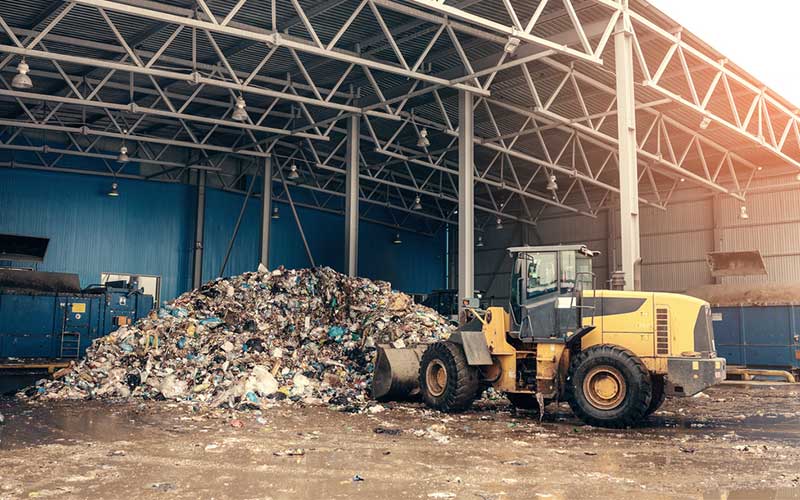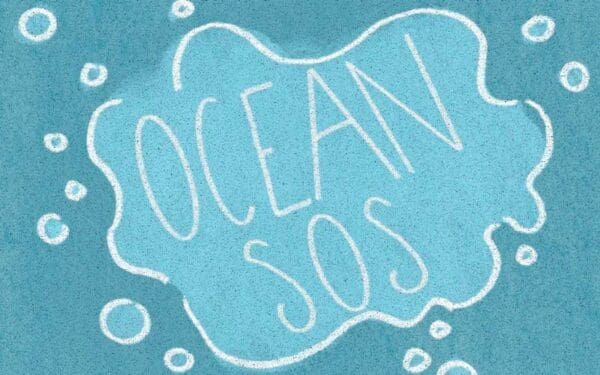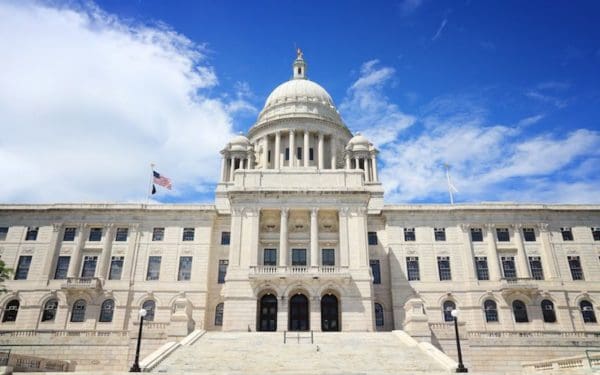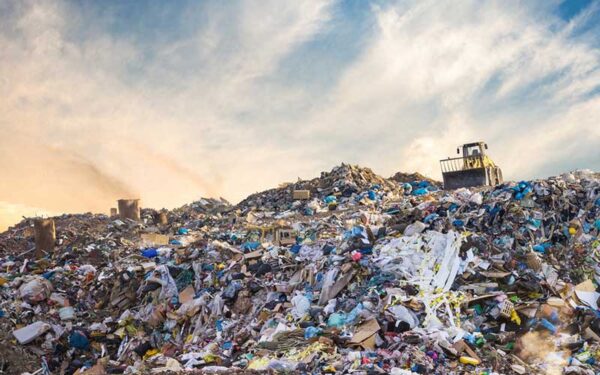
The proposed waste transfer station would create more pollution than it prevents and would bring a number of risks to nearby communities. Photo: Shutterstock
At the corner of Allens and Thurbers avenues in Providence, Rhode Island, sits a less-than-four-acre lot that could soon be home to a massive garbage depot. The proposal has nearby residents in South Providence and Washington Park worried and angry – and with good reason. These neighborhoods suffer from some of the highest asthma rates and blood lead levels in Rhode Island. The garbage depot – and the dust, odor, traffic, and water pollution that would come with it – would force more pollution on the people of South Providence and Washington Park.
These communities are already burdened by daily pollution from other nearby industrial facilities. For city leaders to expect these residents to live with the repercussions of yet another unrepentant polluter is shameful and reckless.
But we have an opportunity to voice our concerns. On March 17, the Providence City Plan Commission is scheduled to hear the garbage depot’s development application. Join us in standing up for the health and environment of our communities by saying “NO” to this garbage depot.
Proposed Transfer Station is No Small Operation
While the proposed garbage depot would live on a site no larger than a city block, developers have big plans in mind. The facility, which would temporarily hold and sort trash before transferring it out of state, aims to process up to 2,500 tons of waste per day – including commercial and residential waste, and construction debris.
This is a massive amount of waste being forced on residents in the South Providence and Washington Park neighborhoods. Only one other transfer station in all of southern New England processes this much trash. Even the Central Landfill in Johnston, which handles 97% of Rhode Island’s trash, only buries about 3,800 tons of waste per day.
Providence’s Environment and Health at Stake
Waste transfer stations like the one proposed bring with them noise, odors, dust, litter, truck traffic, and water pollution. Despite these risks, the owners of this proposed facility have no plans to install adequate dust or odor controls to combat the toxic air pollution and smell.
Instead, the developer wants to control harmful dust by spraying collected wastewater throughout the site. This wastewater would come from the garbage itself – the liquid, or as we call it “garbage juice,” that accumulates as more and more trash is dumped onto the waste processing floor. Garbage juice like this has been found to contain toxic heavy metals and PFAS – dangerous “forever chemicals” that can cause cancer and other serious health problems.
Needless to say, this is a terrible idea that would create more pollution than it prevents.
This part of Providence is already overburdened with pollution from trucks, fossil fuel facilities (like the Shell Oil terminal that CLF is fighting in court), scrap metal piles, and asphalt storage tanks. Adding this garbage depot to the dirty mix would do irreparable harm to people living and raising their families in neighboring communities.
The Alternative? Zero Waste Systems
The reality is, we don’t need this garbage depot to handle our region’s waste. Transfer station proponents will say that New England states, like Rhode Island, Connecticut, and Massachusetts, are running out of room in their own landfills and need to ship waste out of state to solve their capacity problems. But we have other ways to divert our waste – or prevent it altogether. By moving towards Zero Waste alternatives – like composting, bottle-return systems, pay-as-you-throw programs, extended producer responsibility, and plastic bans – New England could stop relying on garbage depots to ship our trash out of state.
Neighborhoods like South Providence and Washington Park should not be saddled with other peoples’ trash, especially when viable alternatives exist.
Stand with Us and Voice Your Concerns
On January 21, the Providence City Plan Commission voted to delay the garbage depot’s development application hearing, despite the fact that dozens of concerned residents and activists showed up to oppose the hazardous redevelopment.
Allowing this dangerous, poorly planned waste transfer station to be built next to South Providence and Washington Park would clash with the city’s new Climate Justice Plan.
CLF stands with the frontline communities that have stood up to say “NO” to this garbage depot. Come join us on March 17 when the City Plan Commission is scheduled to hold its hearing on the proposed waste transfer station.



